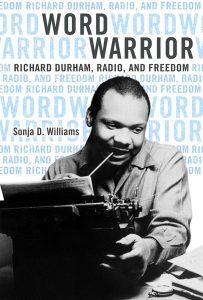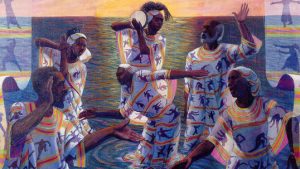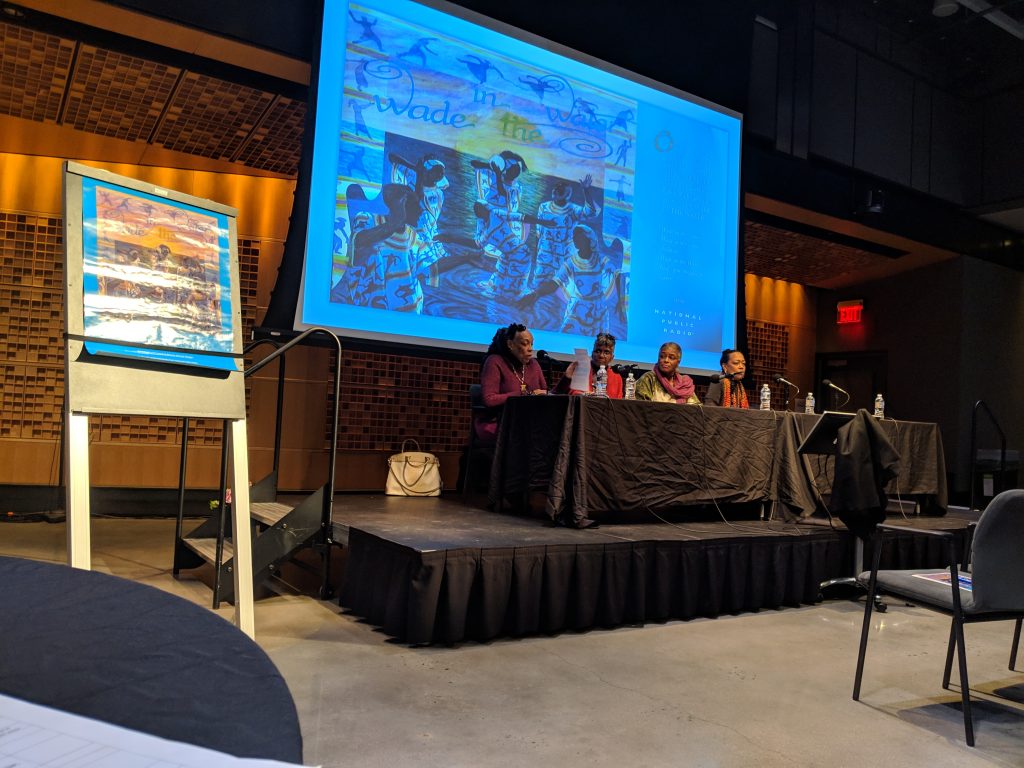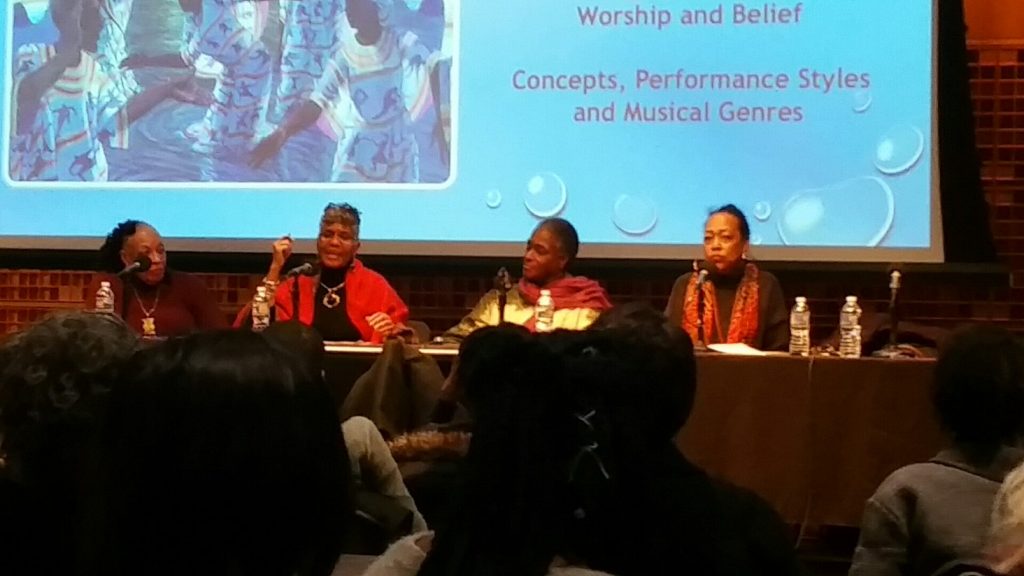Recently, fellow biographer Karin Roffman, author of The Songs We Know Best: John Asbery’s Early Life, asked if she could interview me. Below is the result.
Karin: You’ve recently launched a very ambitious series of weekly podcasts with biographers for BIO (Biographers International Organization). How did you get the idea for this series? And now, after the 16th post, what are some discoveries you’ve made?
Sonja: During our 2017 conference, BIO members Marc Leepson, Lisa Napoli and I thought that the Friday night readings by newly published authors were so interesting, that they should have been recorded and made available to people who hadn’t attended the conference.
Lisa and I are experienced radio announcers/producers, so the path seemed clear. We decided to get permission to record BIO’s May 2018 conference readings, interview the authors and edit those elements into a podcast.
On March 1, 2019, the podcast took flight on BIO’s website and iTunes. A new episode appears each Friday.
Lisa and I cherish the opportunities we’ve had to interact with authors we might never have met. Also, I love the exposure to books I might not have voluntarily selected, and I’m doing what I love; reading, learning from others and, with Lisa, creating aural snapshots of authors and their biographies.
Karin: You published your acclaimed biography of Richard Durham in 2015 after 30 years experience as a radio producer. Can you talk about the relationship between your work in radio and the experience of writing a biography about this iconic radio dramatist and writer?
Sonja: My book, Word Warrior: Richard Durham, Radio, and Freedom, exists because of my experience as a radio documentarian. In the early 1990s, I worked for the Smithsonian Institution’s National Museum of American History on our Peabody Award winning series, Black Radio: Telling It Like It Was.
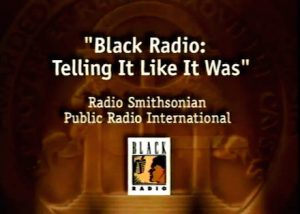
In 13 episodes on public radio, Black Radio examined the history of African Americans and radio. I found out about Durham while conducting research for one of the shows on my writing and producing plate. The more I looked into Durham’s accomplishments as a pioneering radio and TV scriptwriter, print journalist and activist, the more his story intrigued me.
Other than his work as a radio dramatist, little had been written about the totality of Durham’s life and writing. Several of my mentors encouraged me to write his biography, and It took a while for me to adjust my writing-for-the-ear sensibilities to writing for the eye/page. But it eventually clicked and Word Warrior, now in print and audiobookform, is the result.
Karin: There has been an explosion of podcasts in the last few years and an increasing recognition of what a powerful medium for telling stories it is, something you seemed to have recognized very early on and helped to popularize. How did you first become in interested in the narrative possibilities of radio? And do you have a favorite story from your large body of work?
Sonja: New York City is my hometown and I soaked up as much culture as I could in that media capital. When I wasn’t exploring the city or engrossed in a book, you’d probably find me listening to the radio. As a music lover, the popular songs of the day were a big draw. But so was what the DJs and other announcers had to say.
In college, I found my way to our campus radio station and discovered the power of aural storytelling using language, music and other appropriate sounds.I was hooked.
I switched my major from music to mass communications, and in my senior year I produced a short radio documentary about Chicago’s black arts movement. It’s a painful listen now. The narrative arch (if there was one) was choppy, I sound like a chipmunk, and I had much to learn about how to properly use a microphone outside of a studio. Yet I’ve been honing my audio storytelling skills ever since.
With 50-plus radio documentaries (many biographical) in my producing wheelbarrow, it’s difficult to choose a favorite. But one past and now present joy is the series through which I earned the first of three Peabody Awards. NPR and the Smithsonian’s Wade in the Water: African American Sacred Music Traditions was one of the most difficult yet rewarding writing and producing projects I’ve tackled.
I’m ecstatic that this series is once again available.
Karin: Do you think that audiences are becoming more sophisticated as listeners? Have you noticed a change among your students at Howard University?Sonja: Yes, audiences are more sophisticated. Via podcasts, listeners can be exposed to and more discerning about a wide range of storytelling styles and information. However, in this fast-paced world we inhabit, attention spans are short. When I require my students to listen to long-form productions like Wade, almost uniformly they complain about the length.
Still, I’m encouraged.
Well produced and engagingly narrated longer pieces do capture their attention. Such pieces also inspire students to think more critically about the pieces they have to produce, albeit in more concise forms, and which reflect their developing storytelling sophistication. I’ll continue to enjoy watching and hearing the evolution.
Karin: What’s next for you?
Sonja: A group biography is in my future. I’m just not sure of the group yet. I’ve started conducting research about black students in higher education; another possibility is black women jazz singers. For now, I’m unclear about which path to take.
